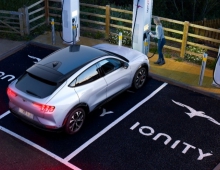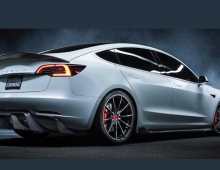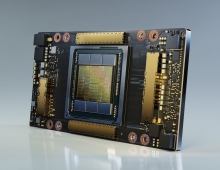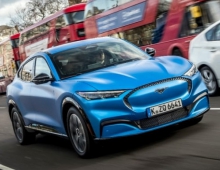
VW's Electrify America And Stable to Deploy Robotic Fast-Charging Facility for Self-Driving Electric Vehicles
Electrify America today announced an agreement with San Francisco-based electric vehicle (EV) fleet charging company Stable Auto to deploy robotic charging solutions for self-driving vehicles in a pilot demonstration site in San Francisco.
The pilot solution aimed at charging autonomous EVs without human intervention using a robotic solution attached to a 150kW DC fast charger. This charging location will be Stable’s first commercial autonomous charging site and is anticipated to be open in early 2020.
As part of this agreement, Electrify America will evaluate the hardware, network, operations and billing of its charging systems to best suit autonomous charging fleets. Electrify America has provided two 150kW DC fast chargers to Stable’s charging facility for initial development work behind demonstrating the commercial viability of autonomous charging services for self-driving EVs.
Stable will manage the overall project and pair its robotic technology and advanced scheduling software located at its facility with Electrify America’s chargers. The dedicated fleet-charging facility will allow self-driving EV fleets to charge with no operators present: vehicles can park themselves anywhere inside a standard parking space, and Stable’s robot will automate the connection between the vehicle and the charger.
Stable has selected Black & Veatch to be the engineering company for this project.
As a part of Electrify America’s Cycle 2 plans, the company announced plans to conduct autonomous charging demonstrations to better understand the optimal charging site design, hardware and back-end solutions. Information from this first site will also help both companies evaluate appropriate business models for different autonomous fleet holders across various locations at commercial scale.
Major automakers including General Motors Co have announced plans to invest tens of billions of dollars on electric vehicles over the next few years, in a direct challenge to Tesla Inc.
But a lack of infrastructure for U.S. drivers to recharge electric vehicles is seen as a major barrier to mass adoption of the cars as consumers remain concerned over limited ranges.





















